© All rights reserved to My Doctor Ltd. | Privacy Policy | Terms of Use
The site contains content in the fields of health, information about various medical services and medical terms. All information, aids and content appearing on the Website are for informational purposes only and do not constitute a medical recommendation, opinion or a substitute for consultation with an expert. Use of the Website does not replace the responsibility of the User and the User to receive advice from a qualified medical professional.
Recommended urogynecologist
Dr. Gennady Bittman - Specializes in surgeries and surgical replacement treatments
Significant refund from insurance companies

Dr. Gandhi Bittman

Specialist in General Gynecology, Urgynecology and Pelvic Floor
Dr. Bittman has been an expert in gynecology and urogynecology at Sheba for over 20 years. Performs fistula repair surgeries (the only one in the center of the country that does this using the vaginal method), gynecological surgeries using endoscopic methods (laparoscopy and hysteroscopy), innovative laparoscopic surgeries to correct pelvic organ prolapse, and surgeries to correct urinary leakage.
Types of Treatments

Advanced laparoscopic surgeries
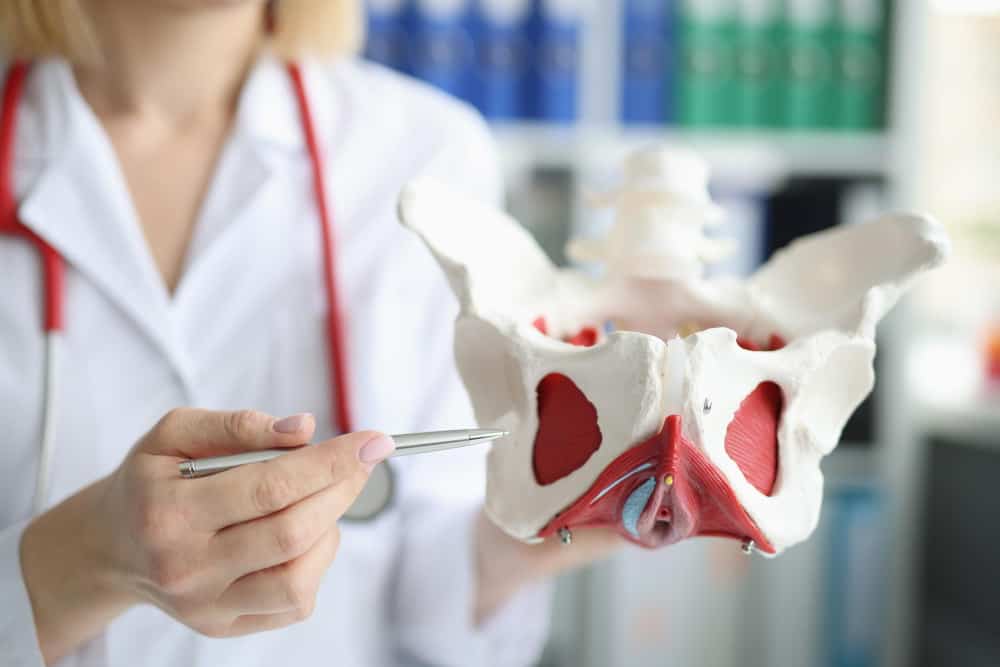
Treatment of pelvic floor prolapse

Treatment of urinary incontinence
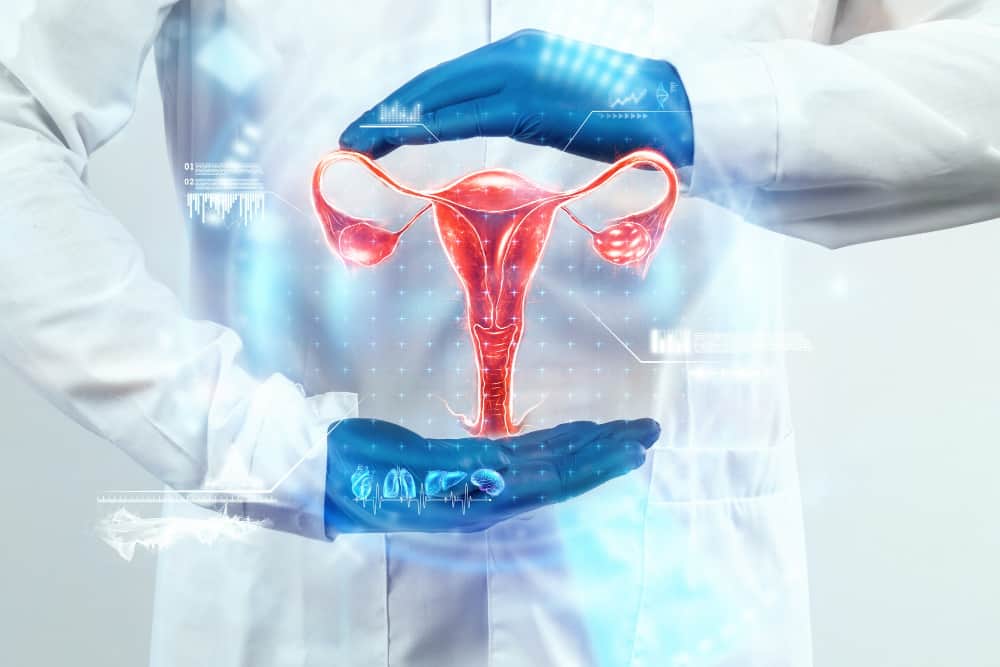
Surgical hysteroscopy
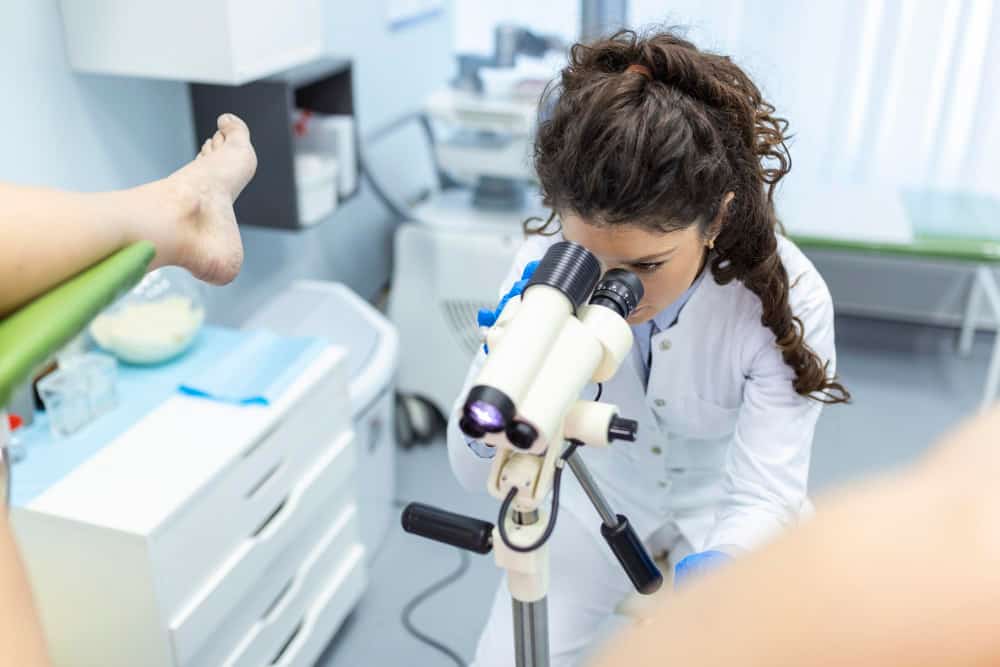
Diagnostic hysteroscopy

The TOT Film Method and Injections

Treatment of intrauterine polyps
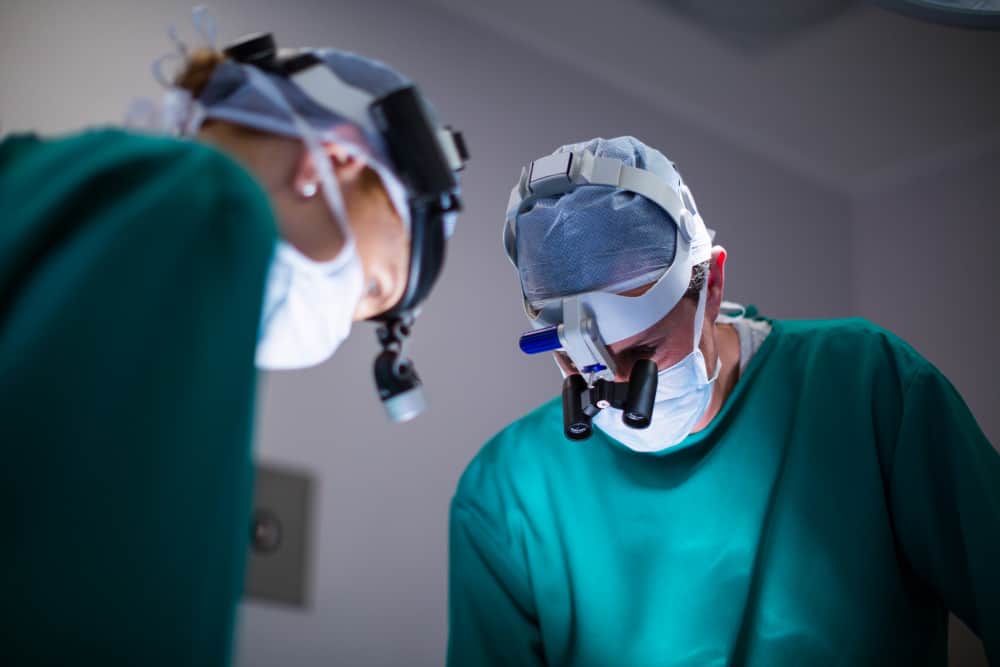
Fibroids

Fistula repairs
What patients say
5/5

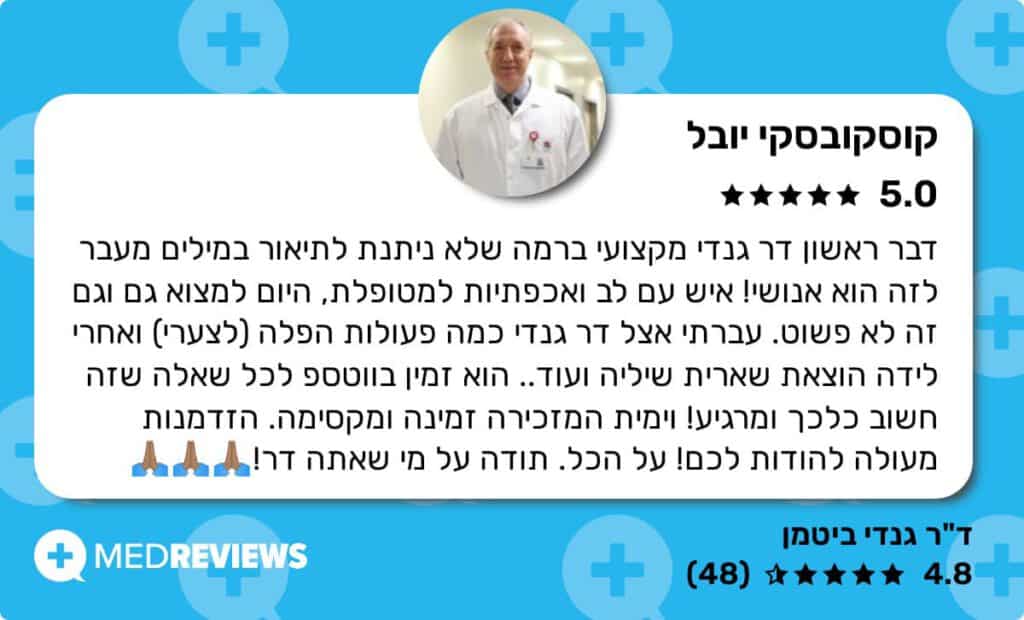




Surgical Replacement Therapy No. 1 - An innovative laser treatment for the treatment of a number of phenomena
1. Urinary incontinence – The laser device treats the vaginal walls by controlled heating of 360 degrees. Heating the tissue rebuilds collagen fibers and elastin fibers, which restores strength to the vagina and straightens the urinary tube, so that the urinary valve returns to normal operation.
2. Vaginal dryness – Renewing the collagen layer and mucosa restores moisture to the vagina and eliminates the feeling of dryness.
3. Vaginal laxity – The treatment of the inner walls of the vagina helps to tighten the vagina and restores its wavy shape. The laser can also treat the outer lips, shrink them and solve the problem of sagging.
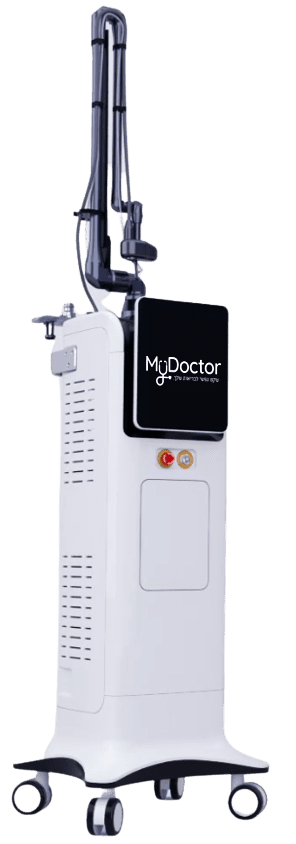
How does it work?
1. The base of the transducer, which is similar to the device used for ultrasound examinations, is inserted into the vagina in a non-invasive operation that does not require anesthesia and is not painful at all.
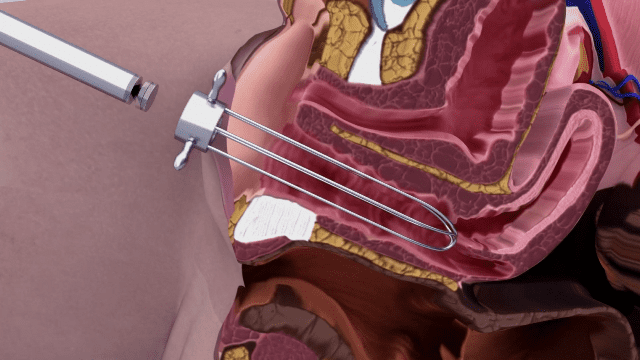
2. The laser head is inserted into the base of the transducer, whose function is to heat the walls of the vagina in a circumferential manner along its entire length.
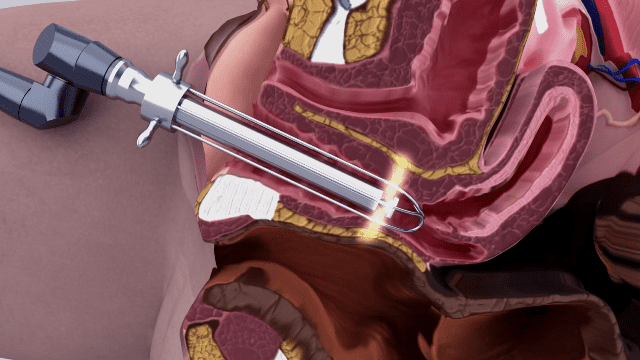
3. Heating the deep layers of pelvic muscle tissue encourages the formation of new collagen and elastin fibers which restore strength and elasticity to the area.
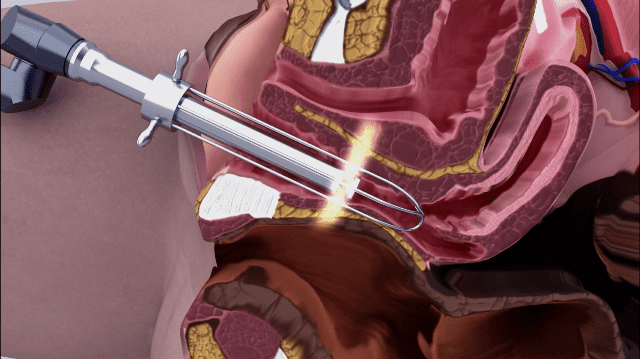

Surgical Replacement Treatment No. 2 - Revolutionary and Non-Invasive Electromagnetic Chair
1. The chair intensively trains the pelvic floor muscles by doing about 11,000 Kegel contractions for just 28 minutes. This is a number of contractions that would take you many months to make!
2. Studies carried out with electromagnetic technology have shown that within 6 sessions of 28 minutes, the problem can be solved in the long term!
3. In many cases of urinary incontinence, training with the chair even replaces the procedure of surgery
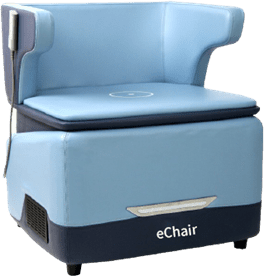
How does it work?

1. Schedule a consultation and adjustment meeting, which includes a medical examination by a physiotherapist specializing in pelvic floor + experiential treatment

2. If you are suitable, schedule a series of treatments using the eChair

3. Embark on a new path with strong pelvic floor muscles that prevent annoying urine odors
4. We will accompany you in receiving reimbursements from your health plan / insurance company
6 Facts About Urinary Incontinence
* The definition of urinary incontinence or urinary incontinence is "involuntary urinary loss". About a third of adult women (over the age of 40) suffer from urinary incontinence at least once a week.
* 5%-10% of older women have severe urinary incontinence in daily life, which causes a dramatic and negative change in their quality of life. Many women in this group suffer from a deterioration in their self-confidence.
* Women who suffer from urgent urinary incontinence are at increased risk of experiencing symptoms such as frequent urinary tract infections (4.3 times more than healthy women), falls and fractures in old age (1.5 times), depression (1.6 times), and insomnia. Beyond that, the situation also has a negative economic impact. On the one hand, these are the costs resulting from the purchase of pads, the loss of work days and a lot of laundry, and on the other hand, the costs of the health systems.
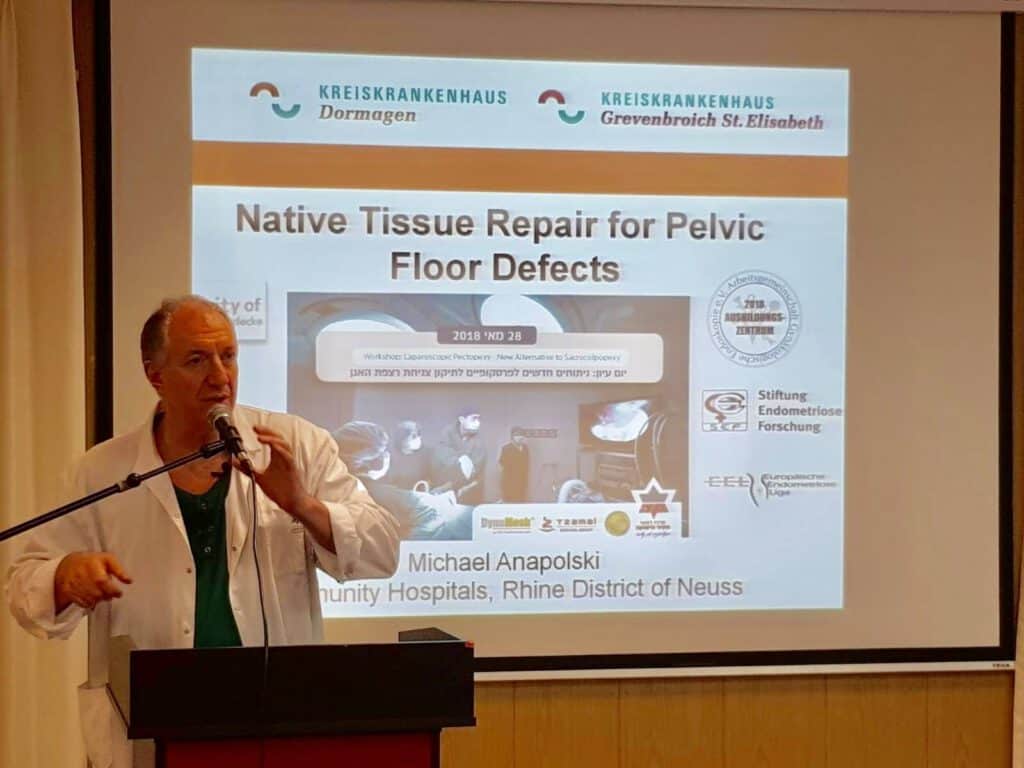

* It has been proven that strengthening the pelvic floor muscles significantly reduces and sometimes even completely solves the problem of urinary leakage.
* There are a number of non-invasive solutions to strengthen the pelvic floor muscles, such as: physiotherapy treatments, Pilates training or Kegel exercises that each person can do in his free time.
The problem with these methods is that even perfect execution will only result in tens of percent of the ability to contract the muscle, because it is difficult if not impossible to reach 100% contraction on your own with the intensity and frequency needed to significantly improve the problem.
Who is a urogynecologist and what are his main areas of practice?
A urogynecologist is a medical specialist who focuses on diagnosing and treating problems related to the female pelvic floor, such as urinary incontinence, pelvic prolapse, bowel and bladder problems. A urogynecologist is trained in both gynecology, obstetrics and urology, training that allows him to have a comprehensive understanding of the female system and its functions.
One of the main roles of a urogynecologist is to assess the condition of urinary incontinence sufferers and treat them. Urinary incontinence is a common condition that affects millions of women and can be caused by a variety of factors, including pregnancy, childbirth, menopause, and obesity. Urgynecologists use a variety of techniques to diagnose and treat urinary incontinence, including medications, pelvic floor exercises, and surgical procedures.
Another important area of treatment for urogynecologists is pelvic organ prolapse. This condition occurs when one or more of the pelvic organs, such as the uterus or bladder, fall into or out of the vagina. Such a condition can be caused by various medical conditions, processes such as pregnancy, childbirth, and obesity, and can lead to symptoms such as difficulty urinating or bowel movements, general discomfort, and sexual dysfunction. A urogynecologist uses various advanced methods to diagnose and treat such conditions.
In addition to urinary incontinence and pelvic organ prolapse, a urogynecologist also treats a variety of other conditions that affect the function and integrity of the female pelvic floor. These conditions can include urinary incontinence when passing stool, excessive bladder activity, and various bladder infections. By virtue of his role, a urogynecologist also sometimes works with patients who have undergone surgery due to cancer and need reconstruction or rehabilitation of the pelvic floor afterwards.
What is the training that a urogynecologist undergoes?
In Israel, urogynecologist training usually includes:
- Medical School: A four-year program where students learn the basic medical sciences and clinical skills.
- Residency Program: After graduating from medical school, urogynecology students must complete a five-year residency program in obstetrics and gynecology. This program includes training in women's health issues such as gynecological surgery, prenatal care, and menopausal treatment.
- Fellowship Program: After completing the residency, urogynecologists can choose to pursue further training through a fellowship program. In Israel, these programs typically last about two years and focus on specialized training in urogynecology.
- Board Certification: After completing the training, a urogynecologist is obligated to pass the certification exam of the Israeli Council of Obstetrics and Gynecology in order to practice in the field in Israel.
A urogynecologist works closely with other healthcare providers, including various doctors, midwives, and gynecologists, to provide comprehensive care to patients. He or she may also work with physical therapists, nurses, and other healthcare professionals to develop treatment plans and provide professional support.
When should you use the services of a urogynecologist?
If you experience any of the following symptoms, you may need to see a urogynecologist for help or treatment:
- Urinary incontinence or difficulty controlling your bladder or bowel movements
- Pain when urinating or having sex
- Prolapse of the pelvic organs (when the pelvic organs fall and press on the vagina or anus)
- Scars or narrowing of the vagina after childbirth or surgery
- Recurrent urinary tract infections
It is also recommended to consult a urogynecologist if you have had any pelvic surgery or have had pregnancies with more than one fetus. He or she will be able to help diagnose these and other problems that follow such cases, and treat any issues related to the bladder, uterus, and other pelvic organs.
What types of treatments can I get from a urogynecologist?
One common treatment provided by a urogynecologist is pelvic floor physiotherapy. This type of therapy includes exercises and techniques to strengthen and improve the function of the muscles that support the pelvic organs. This can be helpful for women who are experiencing problems with urinary incontinence or pelvic organ prolapse. Admittedly, physiotherapy is not only a treatment method but also a way to prevent such cases, against the background of the weakening of the muscles in the area for various reasons.
Another treatment provided by urogynecologists is a variety of minimally invasive surgeries. In this type of surgery, doctors use a special device that penetrates through small incisions and removes damaged or scarred tissues or organs. These procedures are generally less invasive and have a shorter recovery time compared to traditional surgeries. Examples of such minimally invasive surgeries performed by urogynecologists include laparoscopic hysterectomy, cystoscopy, and vaginal surgery to treat urinary incontinence.
As part of their job, a urogynecologist may also recommend medications or other non-surgical treatments for certain conditions. For example, he or she may prescribe medications to treat urinary incontinence or infections, or recommend lifestyle changes that will benefit the patient, such as weight loss or a routine combination of pelvic floor exercises to improve bladder control.
In addition to these treatments, a urogynecologist is also committed to providing knowledge and support to their patients to help them understand and manage their condition. For this purpose, the comprehensive training of those involved in the field has been built, and for this reason they are meticulous about broad collaborations with various parties, as mentioned earlier. What's more, the expertise and comprehensive approach of urogynecologists can help improve the quality of life of many women who experience problems with their health and sexual function.
How to locate a professional and worthy urogynecologist?
If you are looking for a urogynecologist, there are a few steps you can take to ensure that you find one that is excellent and receive the best possible treatment:
- Ask your family doctor or midwife or gynecologist for recommendations. These professionals often have close relationships with reputable professional urogynecologists and can provide you with recommendations based on their knowledge based on your specific needs.
- Do some research online and read reviews of different and potential urogynecologists. Many websites allow patients to rate and check their healthcare providers. This can give you an idea of the quality of care that a particular urogynecologist provides to his patients and other criteria such as clinic service, accessibility, availability, and more.
- Check if the designated doctor has intimidating licenses. Make sure that the urogynecologist you are considering is board-certified and has the appropriate skills to treat your specific condition.
- Consider location and accessibility. It is important to find a urogynecologist who is conveniently located near your residence or workplace. In addition, he should have reasonable availability of appointments to ensure that the treatment in your case is not postponed and worsened. This will make it easier for you to access treatment when needed and can reduce stress and discomfort.
- When you come to your first appointment, ask about treatment options and approaches. It is important to find a urogynecologist who is willing to listen to your concerns and tailor the treatment to your specific needs. Remember that you are in a very personal and sensitive field in all aspects, and therefore it is important that you see eye to eye on the future of treatment and the general approach to the situation. Choose a professional who will give you confidence and calmness.
In conclusion, finding a decent urogynecologist requires simple effort and basic research. By following these steps and taking into account factors such as recommendations, license, location, and treatment options, you can be sure that you are receiving the best treatment.
Referring to a urogynecologist will not necessarily be simple, but it is necessary to understand that problems such as those he treats are critical problems that require early diagnosis and professional and thorough treatment.
Want to schedule a conversation with a urogynecologist?
Leave your details for a consultation with Dr. Gandy Bittman

Our Physiotherapists

Hila Landau - Physiotherapist for pelvic floor rehabilitation and orthopedic rehabilitation
Hila Landau, a physiotherapist for pelvic floor rehabilitation and orthopedic rehabilitation.
She holds a B.P.T in Physiotherapy.
She has diverse clinical experience and a large number of advanced courses in the field of pelvic flooring.
Therapist in pelvic floor rehabilitation, treatment of pain in the relationship, endometriosis, pain during pregnancy and orthopedic rehabilitation.

Noa Nissim - Physiotherapist for Pelvic Floor Rehabilitation and Orthopedic Rehabilitation
Noa Nissim, Physiotherapist for Pelvic Floor Rehabilitation and Orthopedic Rehabilitation
Holds a B.P.T in Physical Therapy
She has diverse clinical experience and a large number of advanced courses in the field of pelvic flooring.
Rehabilitation Pilates instructor,
Therapist in female pelvic floor rehabilitation, treatment of pain in relationships, pelvic floor rehabilitation after pregnancy and childbirth, pain during pregnancy, and orthopedic rehabilitation.

Dr. Dana Poudel - Pelvic Floor Physiotherapist
Dr. Dana Poudel is a PhD specialist in physical therapy from Northwestern University Chicago, USA.
Dana has extensive experience in treating pelvic floor problems in women and men, and even combines yoga exercises in the clinic as a holistic treatment for a variety of problems.

Lee Becker - Pelvic floor specialist physiotherapist
Lee Becker is a Razpan Pelvic Physiotherapist certified by the Ministry of Health (BPT), on behalf of the School of Medicine and Health Professions at Tel Aviv University.
Lee has many years of experience as a physiotherapist, including work at the Maccabi Health Fund, the "Ezer Mizion" association and as an anatomy practitioner at the Ono Academic College.

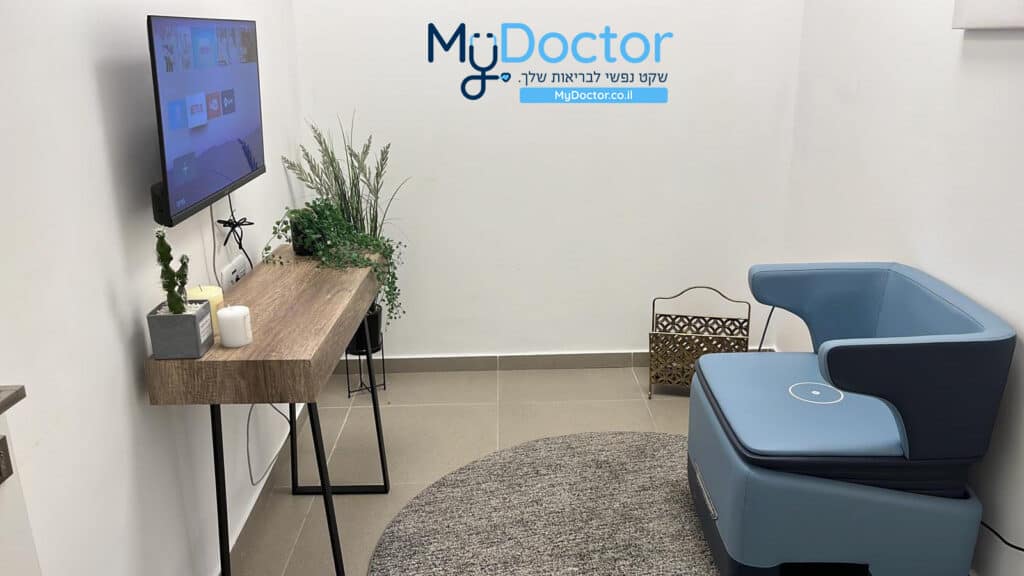
The treatments are entitled to reimbursement from the insurance companies


